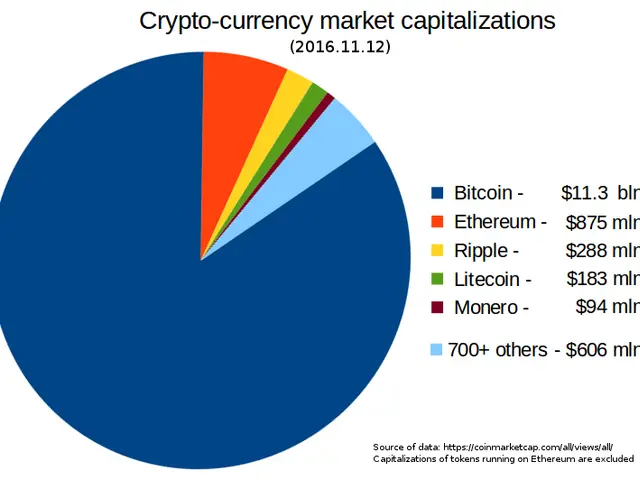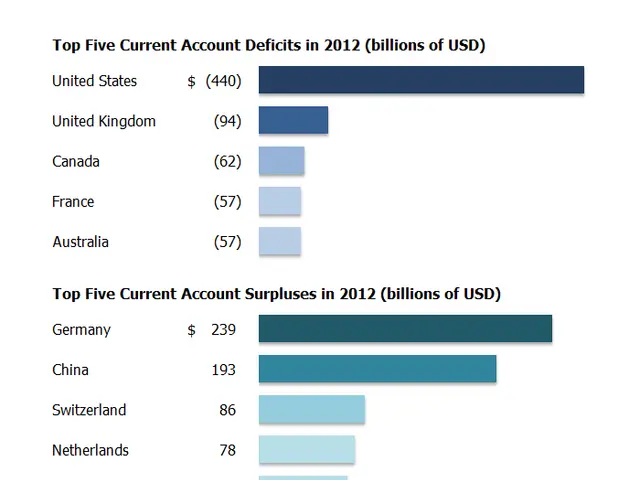Wealthy Individuals Predominantly Invest in Two Split-Shares AI Companies in Anticipation of 2025
Smart capitalists appreciate stock splits for two reasons: They boost stock affordability by trimming share value, and they can serve as subtle hints of top-notch companies. In fact, reverse stock splits only surface after substantial share price escalation, an occurrence seldom seen in underachieving firms.
It's no surprise that a few high-rolling hedge fund execs purchased shares of Broadcom (AVGO -0.64%) and Arista Networks (ANET -0.59%) during the third quarter. Both corporations divided their stock offerings recently.
- Tiger Global Management's Chase Coleman acquired 1.6 million shares of Broadcom, boosting his stake by 912%. Broadcom now ranks among his top 20 holdings.
- Duquesne Family Office's Stanley Druckenmiller snapped up 239,980 shares of Broadcom, initiating a new position. Broadcom lands in his top 15 holdings.
- Point72 Asset Management's Steven Cohen bought 211,823 shares of Arista, expanding his stake by 32%. Arista now ranks among his top 3 holdings, excluding options contracts.
Other multi-billionaire investment managers also acquired shares of Broadcom and Arista during Q3, but their holdings were substantially smaller. For instance, both Citadel Advisors and Millennium Management made purchases of both stocks.
Remember, never buy a stock without thoroughly comprehending the enterprise. To get more info on Broadcom and Arista, keep reading.
1. Broadcom
Broadcom excels in semiconductors and infrastructure software. Its semiconductors are used in Ethernet switches and routers (networking gear), data center storage systems, and mobile devices. Meanwhile, its software tackles cybersecurity, mainframe observability, and data center virtualization.
Broadcom boasts a considerable impact in some semiconductor market segments. Its chips hold the industry standard in networking equipment, with a 80% market share. Spending on Ethernet chips is projected to escalate at 20% to 30% annually for the next few years, as per JPMorgan Chase.
Broadcom is also the leader in high-end, application-specific integrated circuits (ASICs), custom chips tailored for specialized uses like artificial intelligence (AI). Broadcom holds a 60% market share, and spending on AI accelerators, which includes both custom and graphics processing units (GPUs), is poised to grow at 29% annually through 2030, according to Grand View Research.
Broadcom posted respectable financial results during Q4 of 2024, concluding in November. Revenue increased 51% to $14 billion, and non-GAAP earnings augmented 28% to $1.42 per diluted share. However, organic revenue spiked just 11%, as the acquisition of virtualization specialist VMware added 40 percentage points to overall growth.
Regardless, insights from CEO Hock Tan during the earnings call catapulted the stock price. Broadcom now designs custom AI accelerators for three hyperscale companies, reportedly Google parent Alphabet, Meta Platforms, and TikTok parent ByteDance. Tan shared with analysts that revenue from those companies will increase at least fivefold in the next three years.
He also announced that Broadcom is collaborating with two new hyperscalers, allegedly Apple and OpenAI, which are expected to become revenue-generating customers by 2027. This means that revenue from custom AI chips could surge far beyond fivefold within the next three years, suggesting significant market share gains for Broadcom.
Looking ahead, Wall Street anticipates Broadcom's adjusted earnings to expand at 22% annually through fiscal 2027. This current valuation of 49 times adjusted earnings now appears manageable. Persistent investors should consider securing a small position today.
2. Arista Networks
Arista focuses on high-speed networking. The firm sells Ethernet switching and routing platforms that propel information through enterprise and cloud data centers, and it complements its hardware with adjacent software for network observance, automation, and security. Morgan Stanley views Arista as the company most apt to reap the benefits of AI networking demand.
Arista has disrupted the market in two ways. Its core innovation is the Extensible Operating System (EOS), software engineered to function across its entire hardware range. This unified system differentiates Arista from legacy vendors like Cisco Systems that employ distinct operating systems, making networking control more intricate.
Moreover, Arista leverages exclusively third-party semiconductors. By sourcing chips from companies such as Broadcom, Arista is able to craft networking equipment bolstered by the latest technologies without incurring heavy semiconductor design investments. This approach enables Arista to focus on its primary strength, software development, and grants customers versatility to choose the chips used in their networking equipment.
Arista posted impressive results during Q3. Revenue spiked 20% to $1.8 billion, and non-GAAP earnings climbed 31% to $0.60 per diluted share. Furthermore, management upgraded full-year guidance, setting the stage for Q4 revenue to escalate 22%. Beyond that, the firm anticipates 16% revenue growth in 2025.
Crucially, Arista reigns as the market leader in high-speed Ethernet switching platforms, which encompass 100-gigabit switches and faster. Demand for high-speed networking hardware is expected to persist as companies allocate resources to AI infrastructure. Arista is ideally situated to capitalize on this trend.
Wall Street predicts the company's adjusted earnings will surge at 16% annually through 2027. Despite this consensus, which prices the stock at 52 times earnings, investors should still consider purchasing a small position today. Arista's earnings have outpaced estimates in 12 consecutive quarters.
- High-profile investors saw potential in Broadcom and Arista's recent stock dividends, increasing their holdings in both companies. This moves by Tiger Global Management, Duquesne Family Office, and Point72 Asset Management demonstrate confidence in Broadcom's semiconductor market dominance and Arista's position in high-speed networking.
- Smart finance strategies often involve diversifying investments in companies that are strong performers in their respective markets. With Broadcom's innovative AI and semiconductor technology, as well as Arista's leadership in high-speed networking and positioning in the AI infrastructure trend, these companies present attractive opportunities for investors interested in the technology and finance sectors.








